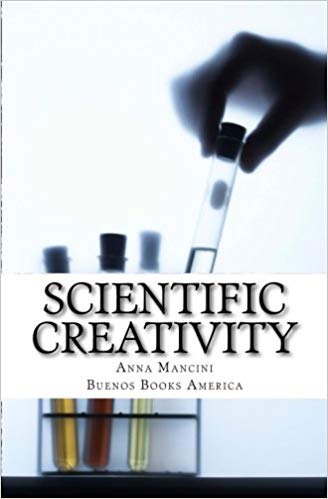
Paperback available on
Buy the Ebook on : Amazon Kindle, iBookstore,Google Play
Also published as : Dreams and Scientific Creativity
Useful Information for Students and Research Teams
by Anna MANCINI, Ph. D
View More By This Author iBookstore
SUMMARY:
Throughout history famous researchers had innovative dreams that sometimes won them a Nobel Prize.
Why did they have these dreams? Based on 20 years innovative work on the connections between dreams and reality and on the role played by the whole body in the innovative dream process, this revolutionary
book answers many questions about scientific creativity and how to boost it. It explains why innovative dreams, ideas and intuitions occur and what blocks them. It reveals how researchers can place themselves in the best conditions to become discoverers. It teaches a powerful technique to provoke innovative dreams, ideas and intuitions instead of waiting for the stroke of luck.
Author : A. Mancini, Ph. D., founder of Innovative You, a Paris-based organization dedicated to the study of the innovative mind.
Contents:
7 Preface- 11 Introduction- 15 Chapter 1 Exploring the functioning of your body at the meeting point between
dreams and reality- 29 Chapter 2 An efficient method for observing the connections between your dreams and
your reality- 49 Chapter 3 Useful information from 20 years of dream-reality work- 67 Chapter A powerful
technique to boost scientific creativity- 75 Chapter 5 The best conditions to receive innovative dreams- 91
Conclusion- 93 Bibliography - 97 Notes
BOOK REVIEW: Midwest Book Review (Oregon, WI USA)
Written by Anna Mancini, founder of Innovative You (a Paris-based organization
dedicated to studying the innovative mind), Scientific Creativity: Useful Information for
Students and Research Teams is a helpful guide to tapping into the power of the innovative
dream process to boost one's creative and "out-of-the-box" thinking when engaged in scientific study, research, and hypothesis. Based on the author's 20 years of study on the connections
between dreams and waking potential, Scientific Creativity is both an exploration of what has
been discovered and a "how-to" manual of techniques for boosting scientific creativity and innovative dreams. "Work during the day in the field in which you want to have innovative
dreams. If you are a taxi driver without any scientific background and you have an innovative
dream about chemistry, you will never know you had an innovative dream in chemistry because
your conscious mind cannot help." An excellent supplementary self-help resource for accessing the hidden "eureka" revelations and powers stashed deep within one's own mind.
TESTIMONIALS:
"I recommend this book because though it is now scientifically recognized that dreaming is vital,
as scientists, we generally ignore the usefulness of dreams in the field of scientific creativity."
Dr LM Dusserre, inventor of the orthodontic pacifier
"We met at the I'nov 2006 Inventor's Show in Bordeaux, France. I find your book extremely fascinating.
It gives a lot of hope about the wealth of the unconscious that may be better used in sciences provided
we pay attention to it."
Danielle Q.
"Scientific Innovation sounds very exciting. I remember when I was younger, about 17, I visited
Thomas Edison's home and workshop in New Jersey, and what I found to be most interesting was t
hat they told us during the tour how much he believed that our dreams held the answers to our questions.
So in his laboratory he had a small cot that he used during the day to rest, close his eyes, meditate, and
get the answers that he needed to continue his work."
Celeste Onorati, Author of You are You, Buenos Books America
Quotes from Herni Poincaré, Science and Method, translated by Francis Maitland, Dover Publications, NY
"The subliminal ego is in no way inferior to the conscious ego; it is not purely automatic; it is capable of
discernment; it has tact and lightness of touch; it can select, and it can divine. More than that, it can divine
better than the conscious ego, since it suceeds where the latter fails. In a word, is not the submiminal
ego superior to the conscious ego?
(p. 57) Henri Poincaré, Science and Method
"The conscious ego is strictly limited, but as regards the subliminal ego, we do not know its limitations,
and that is why we are not too loth to suppose that in a brief space of time it can form more different
combinations than could be comprised in the whole life of a conscient being."
(p.60) Henri Poincaré, Science and Method